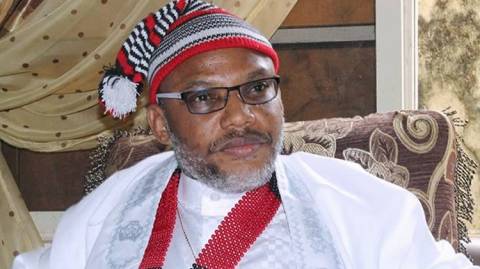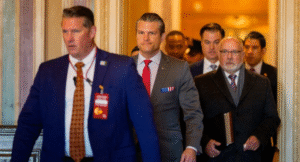
The United Nations, UN Human Rights Council Working Group on Arbitrary Detention, has indicted both Nigeria and Kenya Governments for the arrest and extraordinary rendition, torture and continued detention of the Leader of the Indigenous People of Biafra, IPOB, Mazi Nnamdi Kanu, without due process.
UN therefore, asked Nigerian Government to, “immediate release Kanu unconditionally” and pay him adequate compensations for the arbitrary violation of his fundamental human rights.
It also recommended that Government officials responsible for the torture meted to the IPOB Leader be investigated and punished.
The UN body further directed Nigeria to report back within six months of the transmission of its opinions on Kanu’s matter, steps taken to comply with all the recommendations thereof.
It referred the case of Kanu’s torture to Special Rapporteur on torture and other cruel, inhuman or degrading treatment or punishment for further consideration.
The UN Working Group also threatened to take further action to ensure the recommendations are complied with, noting that both Nigeria and Kenya are signatories to the Convention and should comply.
The 16-page report dated July 20, 2022 was adopted on April 4 by the Working Group on Arbitrary Detention at its 93rd session, held between March 30 – April 8, 2022.
The unedited version of the document sighted by Vanguard, was marked:”Opinion No. 25/2022 concerning Mr. Nwannekaenyi Nnamdi Kenny Okwu-Kanu (Nigeria and Kenya).
The Working Group on Arbitrary Detention was established in resolution 1991/42 of the UN Commission on Human Rights.
In accordance with its methods of work, the Working Group, on December 30, 2021, transmitted to the Nigeria and Kenya Governments, a communication concerning
Mr. Nwannekaenyi Nnamdi Kenny Okwu-Kanu.
According to the report, Nigeria replied to the communication on 25 January 2022 while the Government of Kenya did not reply.
Both countries are parties to the International Covenant on Civil and Political Rights.
The Working Group said in the report that Kanu was a victim of State persecution as Nigeria failed to provide convincing explanations with proof that he is guilty of treason and other criminal allegations levelled against him.
Noting the failure of the Government to explain what actions of Mr. Kanu amounted to such criminal acts and how, and observing the lack of any evidence that any of his actions may in fact amount to such crimes, the Working Group concludes that Mr. Kanu is in fact being persecuted for the peaceful exercise of his rights, most notably his freedom of opinion and expression.
“In the present case, the Government of Nigeria has presented no exceptions permitted under article 19 (3) of the Covenant nor is there any evidence to suggest that Mr. Kanu’s exercise of his right to freedom of opinion and expression was anything but peaceful.
” In fact, the Government has chosen not to provide any explanation for the arrest, detention and subsequent proceedings against Mr. Kanu. In these circumstances, the Working Group concludes that Mr. Kanu’s detention is thus arbitrary under category II”, UN Working Group said.
Turning to the uncontested allegations that following his rendition to Nigeria,
Mr. Kanu remained in pre-trial detention with his trial having been scheduled to commence
in January 2022, the Working Group recalls that it is a well-established norm of international law that pre-trial detention should be the exception rather than the rule, and should be ordered for the shortest time possible. Put differently, liberty is recognised under article 9 (3) of the Covenant as the core consideration with detention merely as an exception.
“Therefore, detention pending trial must be based on an individualised determination that it is reasonable and necessary for such purposes as to prevent flight, interference with evidence or the recurrence of crime. Such determination was not carried out in the present case, in violation of Mr. Kanu’s rights under article 9 (3) of the Covenant..








